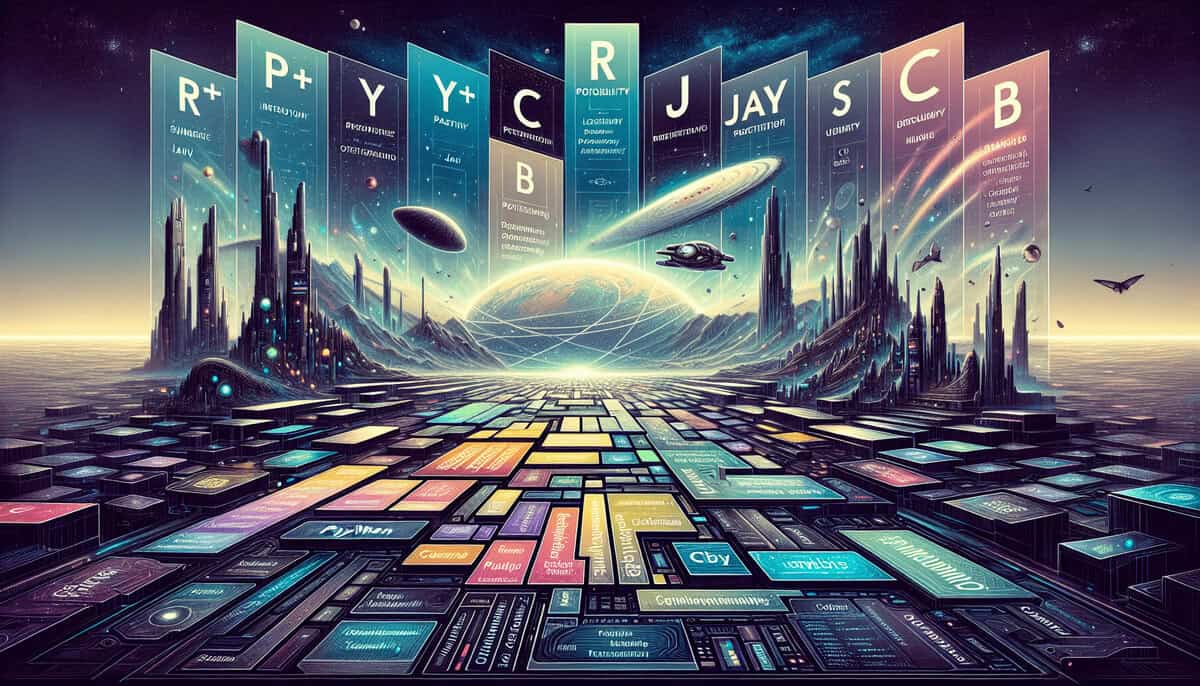The days of Fortran and LISP are almost gone. As of 2025, the 8 most used programming languages are currently:
- Python: renowned for its readability and simplicity, Python is extensively used in web development, data analysis, artificial intelligence, and scientific research. Its vast standard library and supportive community make it a top choice for both beginners and professionals.
- C++: known for its high performance and efficiency, C++ is commonly used in system/software development, game development, and applications requiring real-time processing.
- C: as one of the oldest and most influential languages, C provides low-level access to memory and is widely used in embedded systems, operating systems, and high-performance computing.
- Java: designed for portability across platforms, Java is extensively used in enterprise solutions, web applications, and Android app development. Its “write once, run anywhere” philosophy has contributed to its enduring popularity.
- C#: developed by Microsoft, C# is prevalent in developing Windows applications, game development using Unity, and enterprise software. Its integration with the .NET framework offers a robust environment for application development.
- JavaScript: essential for web development, JavaScript enables interactive and dynamic content on web pages. Beyond front-end development, its use extends to server-side development through environments like Node.js.
- Ruby: emphasizing simplicity and productivity, Ruby is often associated with web development, particularly with the Ruby on Rails framework, which streamlines web application development.
- PHP: widely used for server-side web development, PHP powers many websites and has been integral in creating dynamic web page content.
Find below an extensive list of applicable standards or de-facto standards or specifications for most programming applications:
(click on any intermediate node to extend the tree. Mouse-over on the standard's name to have its full title. Click on it to visit one of the suppliers)
Note: this tree is partially automatically generated and is intended for a first global approach. Do double-check the requirements and completeness (exemple of mistake: listing the rare earth metals standard for an MRI is not appropriate. An MRI has no real magnet.)
Refer to the standards official organisations listed in our tool directory.
External Links on Programming Languages
International Standards
(hover the link to see our description of the content)



























Standards are cool, but dont they stifle creativity in programming? Just tossing it out there, guys. Whats your take?
Interesting article! Does anyone else feel like older programming languages still have a place in modern coding standards?
Absolutely! Old programming languages are the foundation, not obsolete relics. Modern coding needs them.
Related Posts
Greenwashing: A Gentleman’s 15 Best Tips to Exquisite Deception
How-to Best Fight a Pending Patent
All Patent Status: PCT vs Pending Patent vs Published Patent vs Granted Patent
Best 10 Patent Invalidation Strategies and Tools
Life Cycle Assessment (LCA) In Product Design Specifically
Product Value Analysis Overview